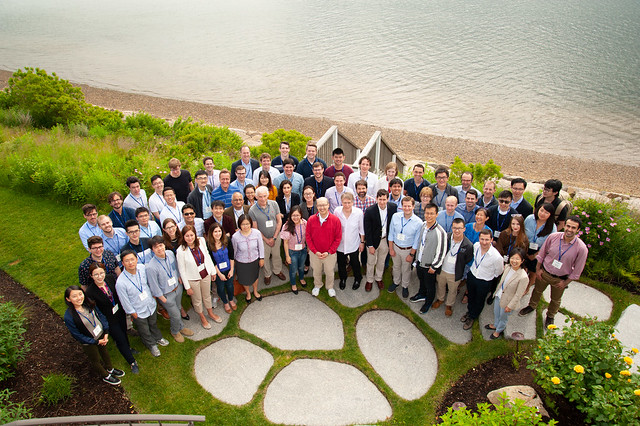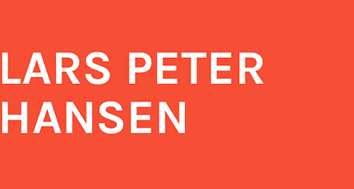On June 17- 21, 2018, we held our third summer camp for the Macro Financial Modeling (MFM) project at Wequassett Resort and Golf Club at Cape Cod, MA. We again attracted a high-quality and energetic group of young scholars interested in the connections between macroeconomics and finance.
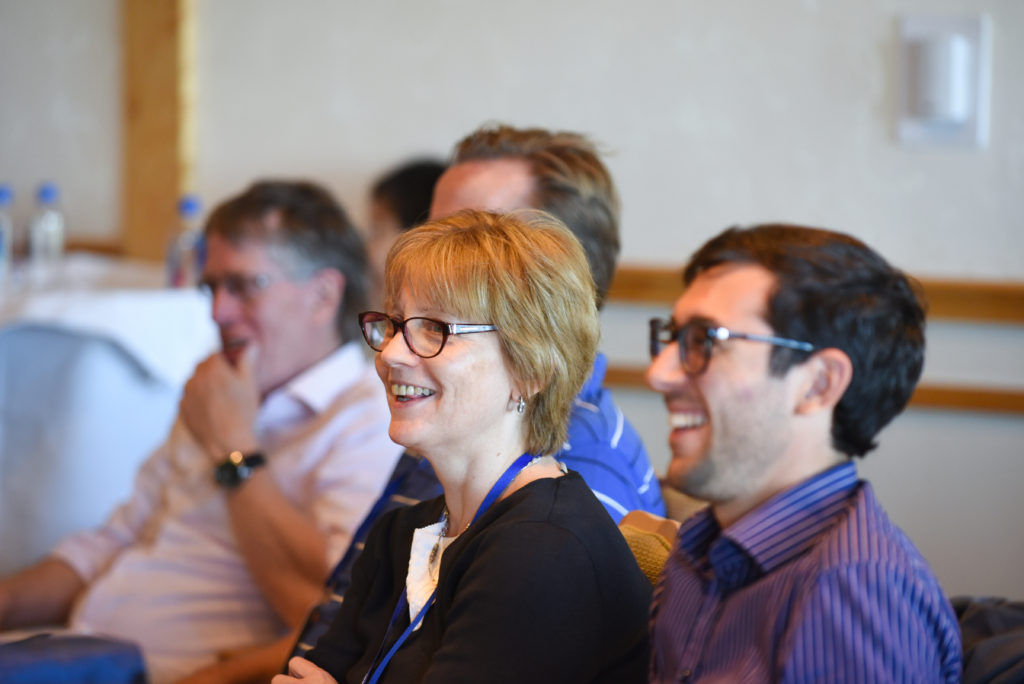 In 2000, the National Research Council (NRC) published a report on how to nurture linkages between mathematics and the sciences. Lars served on this committee and was intrigued by one of the featured recommendations:
In 2000, the National Research Council (NRC) published a report on how to nurture linkages between mathematics and the sciences. Lars served on this committee and was intrigued by one of the featured recommendations:
“Increase the number of specialized summer institutes … organized around a core of committed senior scientists and mathematical scientists, and aimed at fostering linkages between the sciences and mathematical sciences. The Geophysical Fluid Dynamics Program at Woods Hole (incidentally Woods Hole is located at Cape Cod and administered by the University of Chicago), … could serve as a model for introducing senior scientists, graduate students, and postdoctoral fellows to cross-disciplinary research and for sustaining their interest in and commitment to such research. … Such institutes (programs) would foster the prolonged interactions necessary to establish meaningful cross-disciplinary collaborations, provide researchers opportunities to network with colleagues from other disciplines, and help a core group of researchers establish a sufficient understanding of each other’s disciplines to recognize promising research opportunities at the disciplines’ interface.”
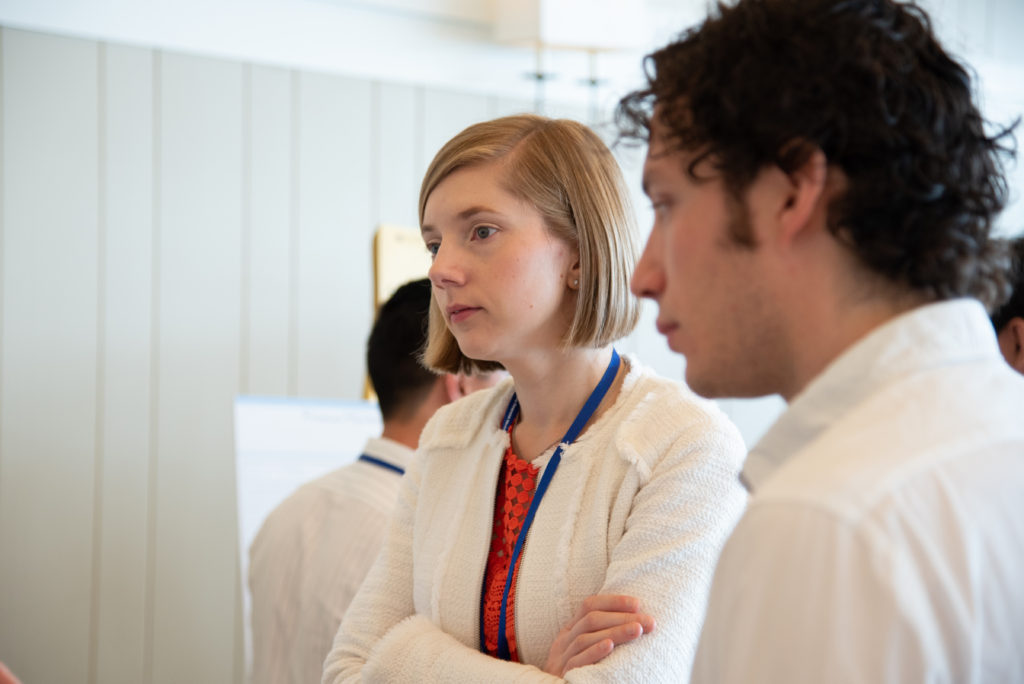 This idea percolated over the years and was in part a motivator for our summer camps aimed at exploring linkages, not just between mathematics and the sciences, but between the important fields of finance and macroeconomics. With Andy Lo’s complementary vision, Amy Boonstra’s unbounded energy, and the willingness of key elite scholars to attend and participate, the six-year-old MFM project and our community is now a well-established entity with wide ranging participation. This year we had 41 new attendees, 10 previous summer session attendees, 19 posters, 10 lightning talks by student presenters, 3 keynote speeches, 11 scholarly tutorials on a wide range of topics and one interactive panel discussion. In addition, we had two of our earliest MFM Fellowship awardees, Aaron Pancost, University of Texas McCombs School of Business, and BFI Research Fellow, Moritz Lenel, share their experiences with preparing for the job market, allowing our younger scholars to ask questions and seek advice. This is a new component to the summer session that we implemented, and we received great feedback from students reporting that the exchange was valuable in their own preparations for the job market.
This idea percolated over the years and was in part a motivator for our summer camps aimed at exploring linkages, not just between mathematics and the sciences, but between the important fields of finance and macroeconomics. With Andy Lo’s complementary vision, Amy Boonstra’s unbounded energy, and the willingness of key elite scholars to attend and participate, the six-year-old MFM project and our community is now a well-established entity with wide ranging participation. This year we had 41 new attendees, 10 previous summer session attendees, 19 posters, 10 lightning talks by student presenters, 3 keynote speeches, 11 scholarly tutorials on a wide range of topics and one interactive panel discussion. In addition, we had two of our earliest MFM Fellowship awardees, Aaron Pancost, University of Texas McCombs School of Business, and BFI Research Fellow, Moritz Lenel, share their experiences with preparing for the job market, allowing our younger scholars to ask questions and seek advice. This is a new component to the summer session that we implemented, and we received great feedback from students reporting that the exchange was valuable in their own preparations for the job market.

This year fintech, financial innovation and investment, and economic challenges in China were included among subjects that were explored. We were treated to a panel with Beverly Hirtle, Executive Vice President Director of Research at the NY Fed with experience in financial market oversight and stress testing, Tao Wang, Head of China Economic Research, UBS Investment Bank with a particular expertise in macroeconomics and finance in Asia, and Richard Sandor, Chairman and CEO of the American Financial Exchange and Professor at the University of Chicago, who has had vast experience in the creation of financial markets.
Equally important was the more informal networking that took place between sessions, over meals and during a boat tour. Young scholars with overlapping interests got to know one another and engaged in conversations with more senior scholars. Often, it is actually the informal exchanges that spark new ideas, new approaches to problems or new perspectives on important challenges. The casual nature of these exchanges allow students to feel more confident seeking feedback from their peers and from the more senior, elite participants. One of the most fascinating aspects of the summer camp is the relentless dedication these students display to fully take advantage of this time given to them to discuss research with their peers, even as the bus returns from a late night dinner and an exhausting day.
While it is difficult to measure the long-term benefits to such a program, we are confident that they are very high. We believe that the most important aspect of the MFM project is the network and community of exceptional scholars that we have successfully created which will ultimately nurture important advances decades into the future. After the summer camp experience, our “campers” were more than happy to share their perceptions of the summer program benefits. Some of the student testimonials are included within this piece.
This year, we invested more time into recording some of the most substantial highlights from the 2018 MFM Summer Session, and we look forward to sharing videos and other coverage soon!
Learn more about the MFM project here.
Lars Peter Hansen and Diana Petrova
Macro Financial Research Initiative
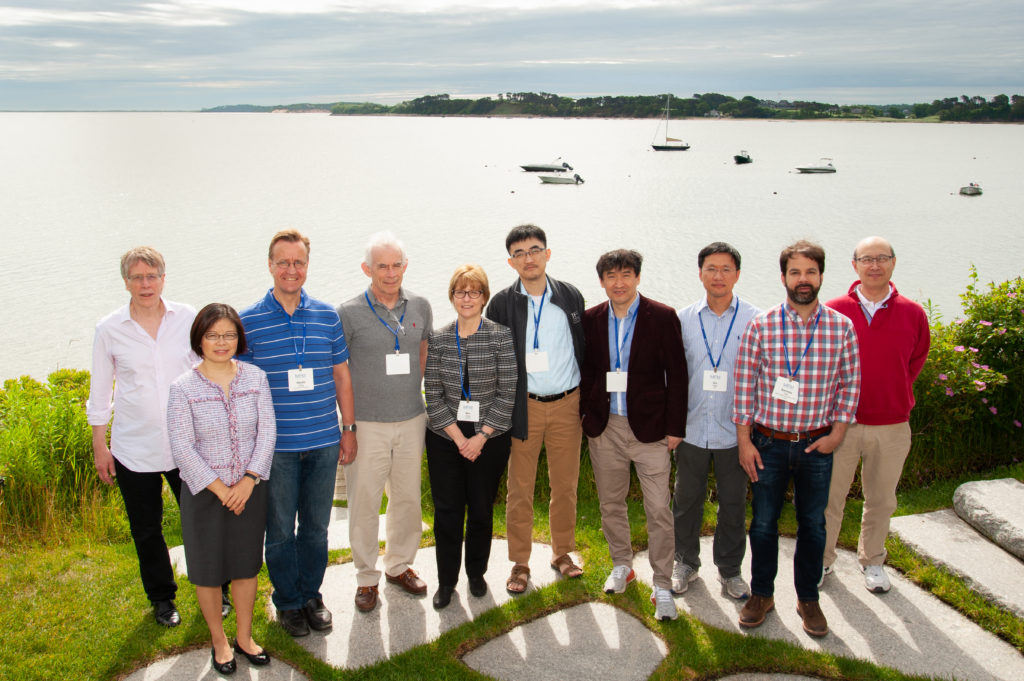
“The MFM Summer Camp was a unique and valuable opportunity for young scholars interested in macroeconomics and finance. The diversity of expertise and interests among the faculty and students was useful for getting feedback on both the empirical and theoretical components of my research. It was also helpful for learning about insightful similarities between the policies, markets, and models I study and those better understood by my peers. The panels and talks from policy and industry insiders were also valuable for improving my understanding of how financial markets and regulation function in practice. The participants ran the spectrum of experience from students just beginning independent research, to those just starting careers at a university, to Nobel laureates. Speaking with researchers across such a variety of career stages was useful for not only providing feedback on specific research projects but also helping to shape my research agenda more broadly.” – Sasha Indarte, Northwestern University and 2017 MFM fellowship awardee
“The MFM summer session was just amazing. It gave us a great opportunity to meet with students and junior scholars with similar research interests in macro finance but from very different research backgrounds. Faculty presentations given by top researchers in macro finance were insightful and inspiring. They provided us with an overview of the research frontier in the literature and encouraged us to work on unresolved, big questions in macro finance. Besides, I really enjoyed presenting my paper in front of all participants in the lightning talk session. After my talk, I discussed my paper with Tobias Adrian. He provided me with fresh insights into how to apply my model to study the effectiveness of the Fed’s lending programs during the financial crisis. Last but not the least, talks given by scholars from the financial industry were eye-opening. For instance, Long Chen’s talk about how technology is shaping the finance industry raised many thought-provoking questions that need to be addressed by a generation of future researchers. Overall the MFM summer camp was an excellent experience for me. I would definitely recommend it to any young scholar who has an interest in macro finance. – Yiyao Wang, University of Chicago Booth School of Business and 2018 MFM fellowship awardee
“I am thrilled to have had the opportunity to attend the MFM Summer Session. Lectures given by both professors and industry practitioners covered some of the latest research advances in the field of macro-finance as well as the first-order questions that the field is still struggling to solve. This provided an inspiring starting point for future research. In addition to lectures by faculty, poster sessions and young scholar lectures were a great way to showcase the questions my peers are studying. I also found more informal conversations with my fellow classmates to be very rewarding. Talking about bankruptcy on a bus ride home from dinner, for example, provided the spark I needed to push forward an ongoing household finance project of mine. To put it simply, I’m excited for this group to be my future colleagues! The summer camp was fantastic, and I will be able to immediately apply this unique experience to my ongoing research.” – Peter Maxted, Harvard University
“The MFM Summer Session was the most remarkable experience so far in my PhD life. During MFM I developed my professional network, got feedback on my research, broadened my horizon and got new ideas by both learning about peers’ research and listening to and talking to speakers. First, MFM is an unparalleled chance for developing professional network. The fact that all participants gather together in an intimate environment for 3 days makes it very easy to know each other quickly and in depth. On the bus, during breaks, over meals, at night around the fire pit, participants have plentiful opportunities to talk with each other, and they’re situations that are suitable for talking about both research and personal topics. Second, it’s a super valuable chance to market our own research. MFM participants are extremely diversified in terms of their institutions, interests, and demographics. By presenting or talking about our research with each other during MFM, one not only gets a rare chance to publicize his or her research into a broad research community at once, but also gets very diversified feedback.” – Scarlet (Sijia) Chen, Stanford University
